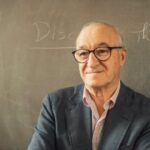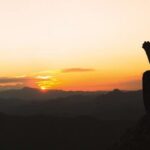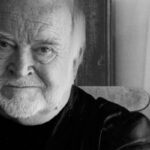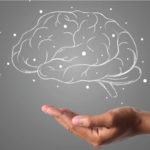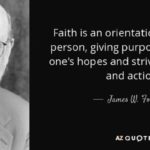Ken Wilber biography and books
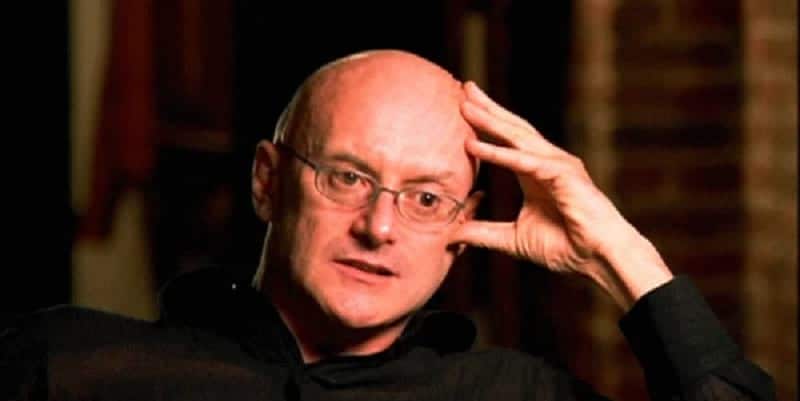
Ken Wilber (Kenneth Earl Wilber II; born January 31, 1949) is an American philosopher and author who writes on developmental psychology, transpersonal psychology, adult development, ecology, philosophy, faith stages, and several other areas of interest. Ken Wilber is the creator of his own Integral Theory and founder of the Integral Institute for teaching and applying Integral Theory.
Ken Wilber biography
Youth
Ken Wilber was born in Oklahoma City, Oklahoma. It was clear from an early age that Ken was an intelligent young man. At primary school he was already called ‘the brain’.
He says he himself had a happy childhood because his parents allowed him his freedom. His father worked for the Air Force and the family never stayed in one place for long. This required a strong adaptability on his part.
In 1967, he enrolled as a pre-med student at Duke University. He became very enthusiastic about what science had to offer and was inspired by Eastern literature, especially the Tao Te Ching.
He dropped out of Duke University and then enrolled at the University of Nebraska at Omaha. Here he completed his bachelor degrees in chemistry and biology. He also obtained a master’s degree in biochemistry.
Start career
1973 was the year Ken Wilber wrote his first book, at the age of 24. The Spectrum Of Consciousness was a pioneering synthesis of physics, religion, philosophy and psychology. It became the basis for all subsequent attempts to clarify the relationship between psychology and spirituality.
In 1979 Ken Wilber came out with another book. No Boundary is a simple yet comprehensive guide to the types of Eastern and Western psychological therapies available to help the reader understand their own nature.
The Atman Project followed a year later. In this book Wilber outlined human development from childhood to adulthood and beyond.
In 1982 The Holographic Paradigm and Other Paradoxes appeared. This book is a collection of essays and interviews examining holography and its relationship to fields such as consciousness, mysticism and science.
A core belief in his approach is the holon, the idea that every entity or concept has a dual nature. Something is like a whole in itself and a part of something else. He gives examples of 20 principles that all show a holon in his 1995 book Sex, Ecology, Spirituality: The Spirit of Evolution. These principles form the foundation of Wilber’s model of manifest reality.
In 1997 journals, he kept a diary of personal experiences. These were later published in 1999 in One Taste, a term he coined for unity consciousness, which stated that body, mind and spirit are all perfect expressions of the Enlightened Spirit.
In his perhaps best-known 1997 book The Eye of Spirit, he used the spectrum of consciousness to describe approaches to psychology, spirituality, anthropology, art, and planetary transformation.
Explain everything
Wilber says he always wants to explain everything. With his work he tries to bridge the gap between religion and science. He believes that many ancient systems of thought stem from the revelations of modern physics, especially quantum theory. Wilber himself pays a lot of attention to new theories about the human brain, the mind and how people have come to self awareness and consciousness.
Wilber deals with the most fundamental questions about human existence: who are we? What makes us humans? Why do we exist? Why do we have a consciousness? Are we part of a larger system? What is our meaning in the universe?
Theory of Everything
In his book A Theory of Everything, he tries to bring together many important disciplines to show how these most important questions can be answered. He shows how things like consciousness, science and spirituality all work together in a dynamic process that is life and existence itself.
Famous quotes by Ken Wilber
- “A natural hierarchy is simply an order of increasing wholeness, such as: particles to atoms to cells to organisms, or letters to words to sentences to paragraphs. The whole of one level becomes part of the whole of the next. In other words, natural hierarchies are composed of holons.”
- “And resting in the ocean, dipped into the sea, I find glimmers of One Taste everywhere.”
- “As Aurobindo and Teilhard de Chardin knew, the future of humankind is God-consciousness.”
- “Authentic spirituality is revolutionary. It does not legitimate the world, it breaks the world; it does not console the world, it shatters it. And it does not render the self-content, it renders it undone.”
- “Be the most ethical, the most responsible, the most authentic you can be with every breath you take, because you are cutting a path into tomorrow that others will follow.”
- “Boundary lines, of any type, are never found in the real world itself, but only in the imagination of the mapmakers.”
- “Do you even recognize your own consciousness?”
- “Eternity is not ever-lasting time but the real, unfading, indestructible, and timeless Present, for, as Schroedinger said, the present is the only thing that has no end.”
- “Evolution does not isolate us from the rest of the Kosmos, it unites us with the rest of the Kosmos: the same currents that produced birds from dust and poetry from rocks produce egos from ids and sages from egos.”
- “Freedom is an endless meeting.”
- “Global consciousness is not an objective belief that can be taught to anybody and everybody, but a subjective transformation in the interior structures that can hold belief in the first place, which itself is the product of a long line of inner consciousness development.”
- “I don’t have to agree with everything you say, but I should attempt at least to understand it, for the opposite of mutual understanding is, quite simply, war.”
- “I have one major rule: Everybody is right. More specifically, everybody – including me – has some important pieces of truth, and all of those pieces need to be honored, cherished, and included in a more gracious, spacious, and compassionate embrace.”
- “I rise to taste the dawn, and find that love alone will shine today.”
- “If you really want to change the world, you must first understand it adequately, or all you will do is reproduce in larger numbers your own ignorance.”
- “In the dream state, the mind and soul are set free to create as they please, to imagine vast worlds not tied to gross sensory realities but reaching out, almost magically, to touch other souls, other people and far-off places, wild and radiant images cascading to the rhythm of the heart’s desire.”
- “Love is a time-honored way to transcend the separate-self sense and leap into the sublime; Treya and I held hands, closed our eyes, and jumped.”
- “Meditation, then, is not so much a part of this or that particular religion, but rather part of the universal spiritual culture of all humankind – an effort to bring awareness to bear on all aspects of life. It is, in other words, part of what has been called the perennial philosophy.”
- “Nobody is smart enough to be wrong all the time.”
- “Physics is the most fundamental, and least significant, of the sciences.”
- “Prana is implicate to matter but explicate to mind; mind is implicate to prana but explicate to soul; soul is implicate to mind but explicate to spirit; and the spirit is the source and suchness of the entire sequence.”
- “Put bluntly, the ego is not an obstruction to Spirit, but a radiant manifestation of Spirit. All Forms are not other than Emptiness, including the form of the ego. It is not necessary to get rid of the ego, but simply to live with it a certain exuberance.”
- “Religion is just coded spirituality.”
- “Saving the biosphere depends first and foremost on human beings reaching mutual understanding and unforced agreement as to common ends. And that intersubjective accord occurs only in the noosphere. Anything short of that no ospheric accord will continue to destroy the biosphere.”
- “The integral sage, the nondual sage, is here to show us otherwise. Known generally as “Tantric,” these sages insist on transcending life by living it. They insist on finding release by engagement, finding nirvana in the midst of samsara, finding total liberation by complete immersion.”
- “The more I go into I, the more I fall out of I.”
- “The mystics ask you to take nothing on mere belief. Rather, they give you a set of experiments to test in your own awareness and experience. The laboratory is your own mind, the experiment is meditation.”
- “The nondual universe of One Taste arises as a spontaneous gesture of your own true nature.”
- “The truth is an arbitrary, shifting, culturally relative, and historically molded phenomenon.”
- “The truth will not necessarily set you free, but truthfulness will.”
- “The understanding of “evolutionary consciousness” is perhaps the most important thing lacking in spiritual practices today. Evolution means growth and development. This means that there are aspects of reality that have not yet arisen in our consciousness. But they will arise if we grow.”
- “There is a way out, but the way out is really a way within.”
- “There is intersubjectivity woven into the very fabric of the Kosmos at all levels.”
- “There is nothing but God, nothing but the Goddess, nothing but Spirit in all directions, and not a grain of sand, not a speck of dust, is more or less Spirit than any other.”
- “This is the world of One Taste, with no inside and no outside, no subject and no object, no in here versus out there, without means, without path and without goal. And this, as Ramana said, is the final truth.”
- “To understand the whole it is necessary to understand the parts. To understand the parts, it is necessary to understand the whole. Such is the circle of understanding.”
- “Unhappiness and dissatisfaction with life are not signs of mental illness, but of growing intelligence.”
- “We must forgive each other our arising, for our existence always torments others. The golden rule in the midst of this mutual misery has always been, not to do no harm, but as little as possible; and not to love one another, but as much as you can.”
- “What is it in you that brings you to a spiritual teacher in the first place? It’s not the spirit in you, since that is already enlightened, and has no need to seek. No, it is the ego in you that brings you to a teacher.”
- “When the thunder roars, do you not hear your Self? When the lightening cracks, do you not see your Self? When clouds float quietly across the sky, is this not your very own limitless Being, waving back at you?”
- “Whenever we moderns pause for a moment, and enter the silence, and listen very carefully, the glimmer of our deepest nature begins to shine forth, and we are introduced to the mysteries of the deep, the call of the within, the infinite radiance of a splendor that time and space forgot.”
- “You cannot have exterior development without interior development to hold it in place.”
Publications and books by Ken Wilber et al.
- 2020. Grace and Grit: A Love Story. Shambhala Publications.
- 2017. Trump and a post-truth world. Shambhala Publications.
- 2017. The religion of tomorrow: a vision for the future of the great traditions-more inclusive, more comprehensive, more complete. Shambhala Publications.
- 2017. A brief history of everything. Shambhala Publications.
- 2016. Integral meditation: Mindfulness as a way to grow up, wake up, and show up in your life. Shambhala Publications.
- 2015. Wicked & wise: How to solve the world’s toughest problems. Croydon, UK: Urbane Publications.
- 2010. Integral theory in action: Applied, theoretical, and constructive perspectives on the AQAL model. SUNY Press.
- 2008. Integral life practice: A 21st-century blueprint for physical health, emotional balance, mental clarity, and spiritual awakening. Shambhala Publications.
- 2007. Up from Eden: A transpersonal view of human evolution. Quest books.
- 2007. The integral vision: A very short introduction to the revolutionary integral approach to life, God, the universe, and everything. Shambhala Publications.
- 2007. Integral spirituality: A startling new role for religion in the modern and postmodern world. Shambhala Publications.
- 2006. Toward a comprehensive integration of science and religion: A post‐metaphysical approach. In The Oxford handbook of religion and science.
- 2005. A sociable god: Toward a new understanding of religion. Shambhala Publications.
- 2005. Introduction to integral theory and practice. AQAL: Journal of Integral Theory and Practice, 1(1), 2-38.
- 2003. Ken Wilber: thought as passion. SUNY Press.
- 2003. Boomeritis: A novel that will set you free!. Shambhala Publications.
- 2001. The eye of spirit: An integral vision for a world gone slightly mad. Shambhala Publications.
- 2001. Sex, ecology, spirituality: The spirit of evolution. Shambhala Publications.
- 2001. Quantum questions: Mystical writings of the world’s great physicists. Shambhala Publications.
- 2001. No boundary: Eastern and Western approaches to personal growth. Shambhala Publications.
- 2001. Eye to eye: The quest for the new paradigm. Shambhala Publications.
- 2001. A theory of everything: An integral vision for business, politics, science and spirituality. Shambhala publications.
- 2000. One taste: Daily reflections on integral spirituality. Shambhala Publications.
- 2000. Integral psychology: Consciousness, spirit, psychology, therapy. Shambhala Publications.
- 2000. Waves, streams, states and self. Further considerations for an integral theory of consciousness. Journal of Consciousness Studies, 7(11-12), 145-176.
- 1999. The marriage of sense and soul: Integrating science and religion (No. 120). Harmony.
- 1999. One taste. Random House.
- 1999. Spirituality and developmental lines: Are there stages?. The Journal of Transpersonal Psychology, 31(1), 1.
- 1997. An integral theory of consciousness. Journal of consciousness studies, 4(1), 71-92.
- 1996. The Atman project: A transpersonal view of human development. Quest Books.
- 1994. The worldview of ken Wilber. Journal of Humanistic Psychology, 34(2), 6-21.
- 1993. The spectrum of consciousness. Quest Books.
- 1993. The great chain of being. Journal of Humanistic Psychology, 33(3), 52-65.
- 1990. Two patterns of transcendence: A reply to Washburn. Journal of Humanistic Psychology, 30(3), 113-136.
- 1987. Spiritual choices: The problems of recognizing authentic paths to inner transformation. Paragon House Publishers.
- 1984. The developmental spectrum and psychopathology: part II, treatment modalities. The journal of transpersonal psychology, 16(2), 137.
- 1984. The developmental spectrum and psychopathology: Part I, stages and types of pathology. Journal of Transpersonal Psychology, 16(1), 75-118.
- 1982. The pre / trans fallacy. Journal of Humanistic Psychology, 22(2), 5-43.
- 1979. A developmental view of consciousness. Journal of Transpersonal Psychology, 11(1), 1-21.
- 1975. Psychologia perennis: The spectrum of consciousness. Journal of Transpersonal Psychology, 7(2).
How to cite this article:
Janse, B. (2022). Ken Wilber. Retrieved [insert date] from Toolshero: https://www.toolshero.com/toolsheroes/ken-wilber/
Published on: 08/03/2022 | Last update: 04/04/2023
Add a link to this page on your website:
<a href=”https://www.toolshero.com/toolsheroes/ken-wilber/”>Toolshero: Ken Wilber</a>


